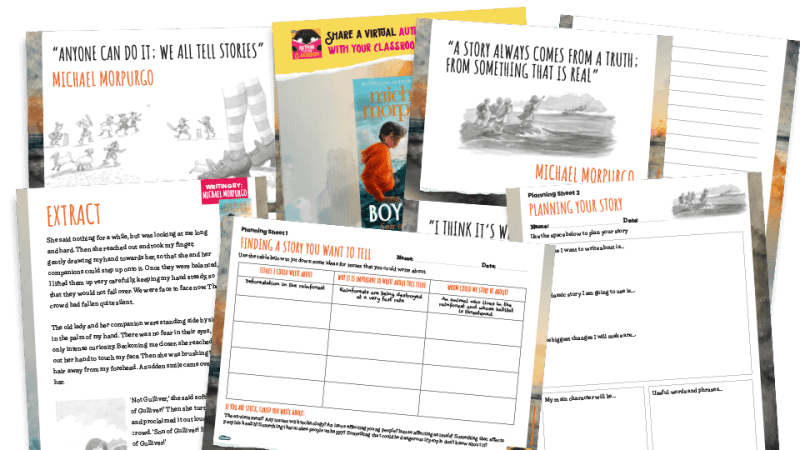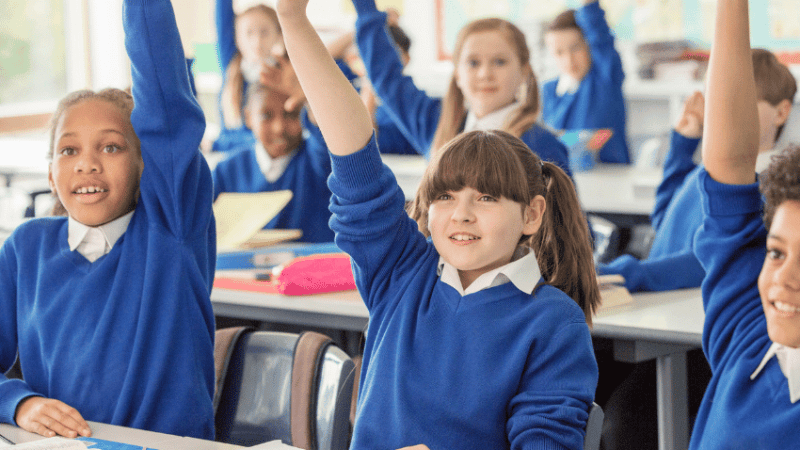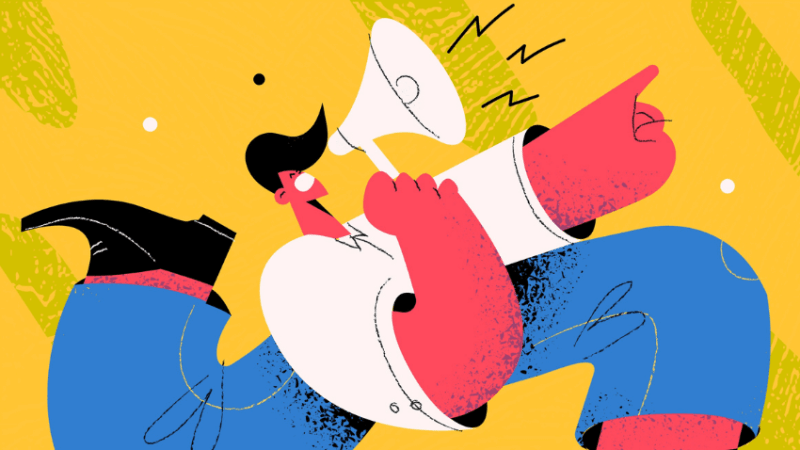Adjectives KS1 and KS2 – Best worksheets, games & ideas
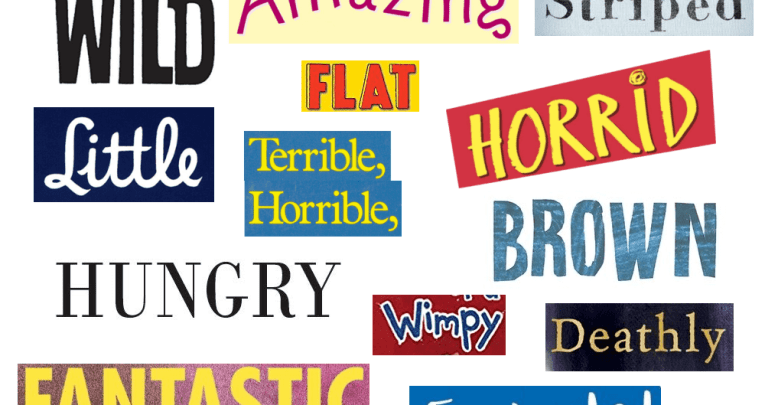
Develop literacy, improve grammar and make children's writing better than ever with these adjectives games, worksheets, lessons, activities and other resources for primary school…

- by Teachwire
- Classroom expertise and free resources for teachers
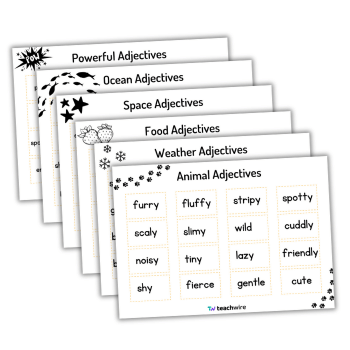
If you’re looking for adjectives KS1 or KS2 resources, worksheets, games or mats, we’ve got you covered…
What are adjectives?
An adjective is a descriptive word naming an attribute of a noun. Or, more plainly, it is a word that describes a person or thing.
Adjectives are words that modify other words to make language more interesting or specific. The national curriculum guidance offers the following advice:
The surest way to identify adjectives is by the ways they can be used:
- before a noun, to make the noun’s meaning more specific (ie to modify the noun), or
- after the verb be, as its complement.
English adjectives cannot be modified by other adjectives. This distinguishes them from nouns, which can be.
Adjectives are sometimes called ‘describing words’ because they pick out single characteristics such as size or colour. This is often true, but it doesn’t help to distinguish adjectives from other word classes because verbs, nouns and adverbs can do the same thing.
Adjective examples
It then goes on to offer these examples of what is, and what is not, an adjective:
- The pupils did some really good work. [adjective used before a noun, to modify it]
- Their work was good. [adjective used after the verb be, as its complement]
Not adjectives:
- The lamp glowed. [verb]
- It was such a bright red! [noun]
- He spoke loudly. [adverb]
- It was a French grammar book. [noun]
What is an adjective phrase?
Also known as an adjectival phrase, this is a group of words which includes an adjective, that modifies a noun.
Now, with that out the way, let’s get on to the KS1 and KS2 adjectives resources…
Adjectives KS1 and KS2 resources
Adjective word mat for KS1 / KS2
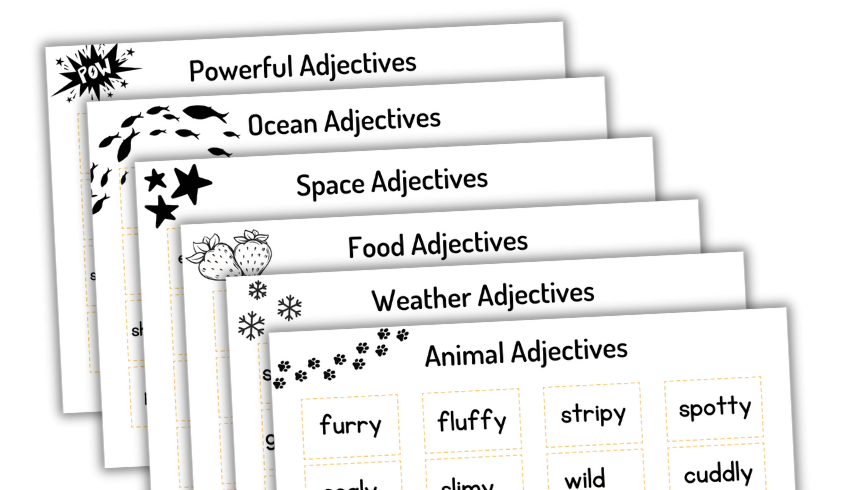
This free adjective word mat collection is an amazing tool for KS1 and KS2 students. The themed vocab lists will ignite children’s creativity and enhance their writing.
You have the flexibility to download and print these PDF mats, as well as tailor them to match your requirements using the editable PowerPoint version.
Monster menu adjectives KS2 lesson plan
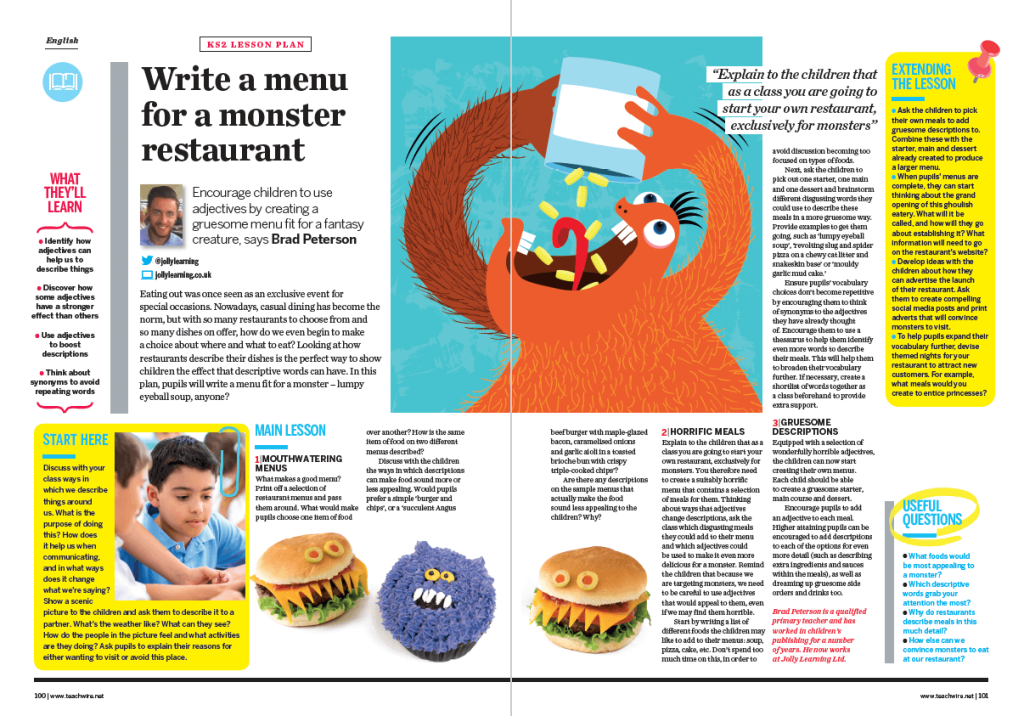
Looking at how restaurants describe their dishes is the perfect way to show children the effect that descriptive words can have. In this adjective lesson plan, pupils will write a menu fit for a monster – lumpy eyeball soup, anyone?
They’ll learn how to identify how adjectives can help us to describe things, discover how some adjectives have a stronger effect than others, use adjectives to boost descriptions and think about synonyms to avoid repeating words.
KS1 adjectives teaching pack and SPaG worksheets (Year 2)

This KS1 adjectives grammar resource from Plazoom provides everything you need to teach five 15-minute lessons on adjectives to Year 2. As well as learning about the purpose and usage of adjectives, children are challenged to come up with creative responses in their writing to this area of grammar, with colourful images included to help inspire their work.
Scary adjectives word mat
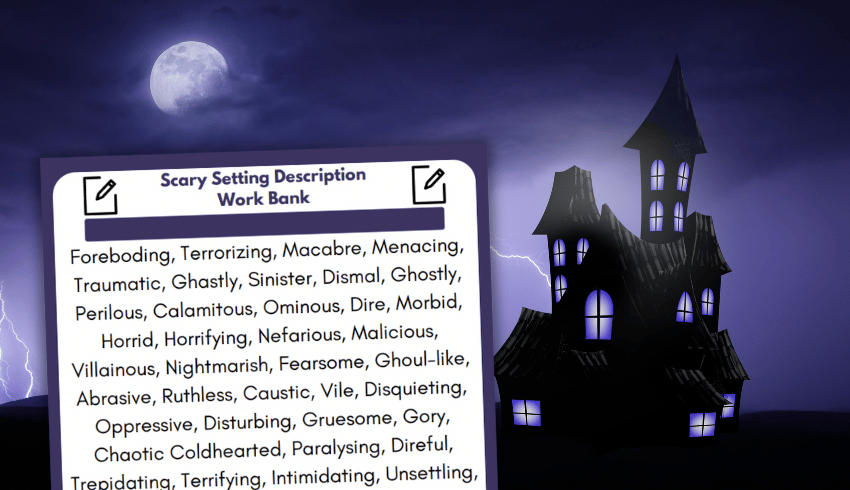
Enhance your pupils’ descriptive writing skills with this scary adjectives PDF, perfect for helping children craft chilling and atmospheric settings that elevate their creative writing.
Spooky adjectives worksheet
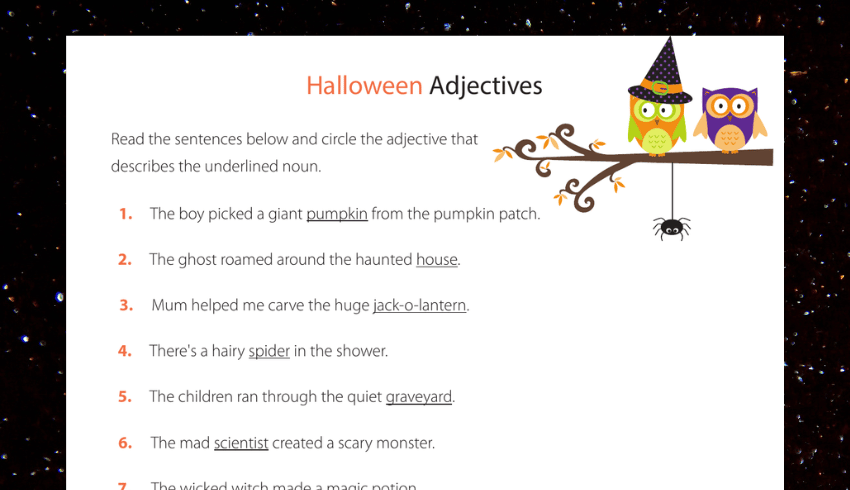
This spooky adjective worksheet tasks pupils with circling the adjective that describes the underlined noun.
Trending
Adjectives factsheets and worksheets
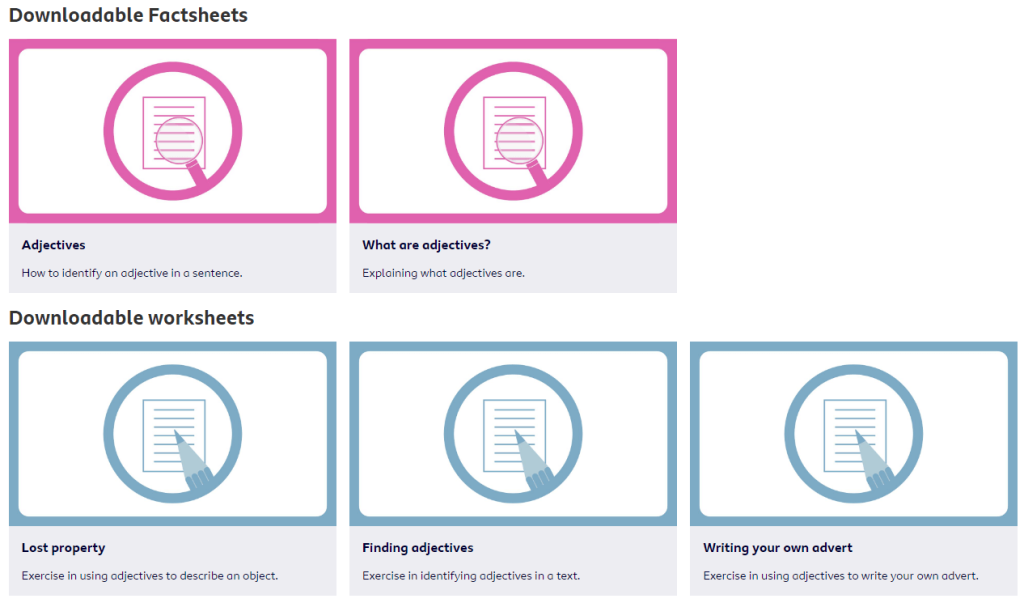
This BBC Skillswise page features a video, two downloadable factsheets and four downloadable worksheets on adjectives.
The activities include identifying multiple adjectives, describing an object you’re trying to find in lost property and writing an advert.
Adjectives list for KS1 / KS2
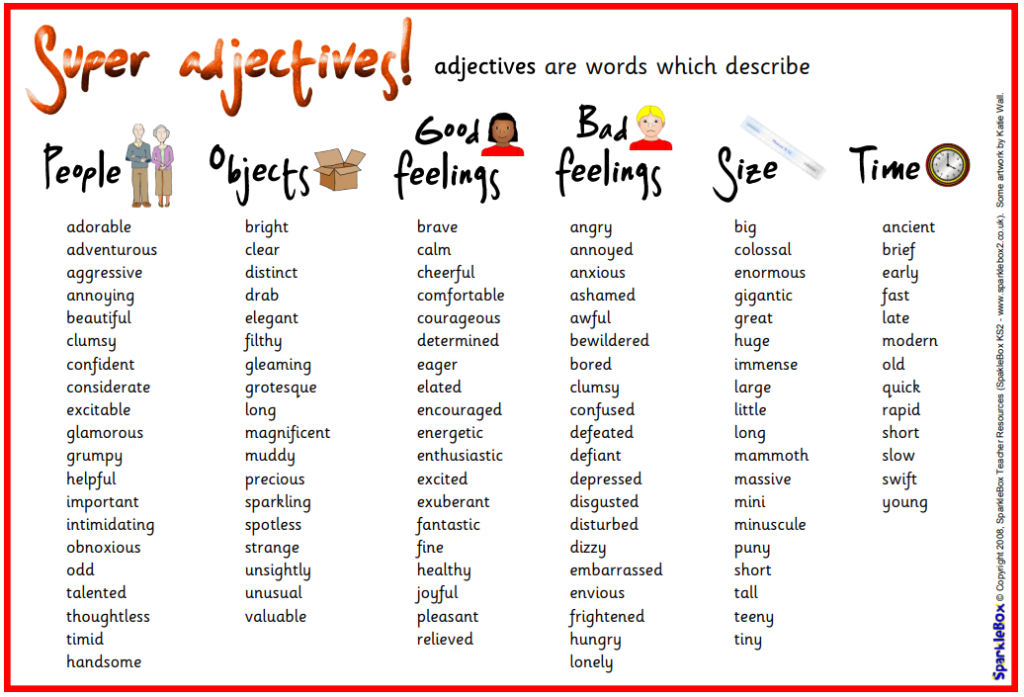
This free printable word mat for KS1 or KS2 offers six categories for adjective lists: people, time, good feelings, bad feelings, objects and size, with just over 100 words in total.
Adjective synonyms worksheet
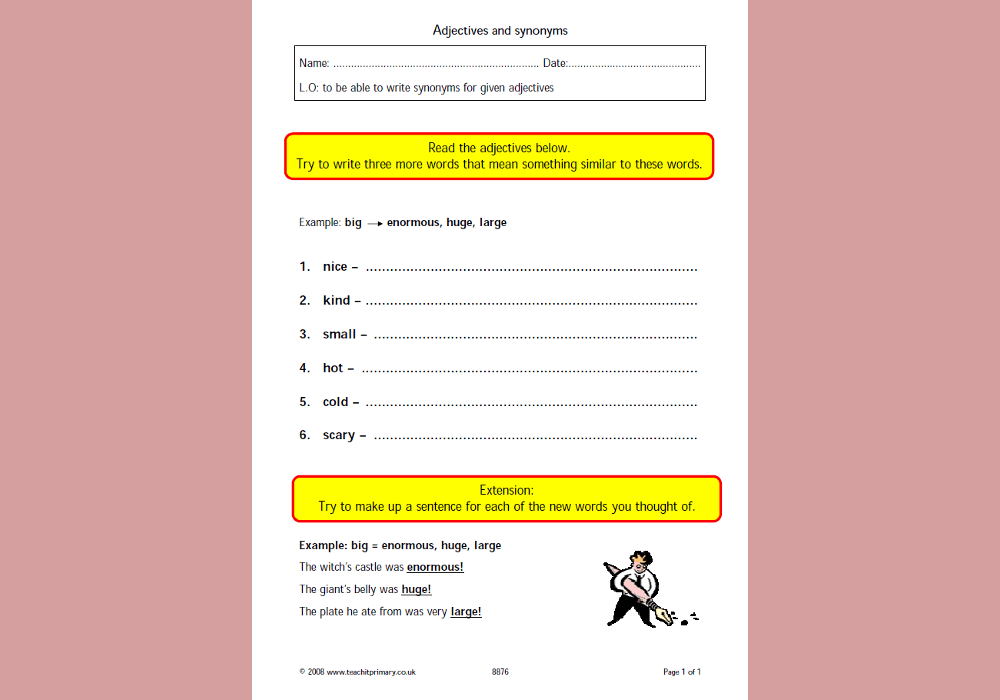
This simple little worksheet asks pupils to think of three more exciting synonyms for the adjectives nice, kind, small, hot, cold and scary. Then, as an extension, write a sentence for each word they’ve just come up with.
Adding suffixes –er or –est to adjectives
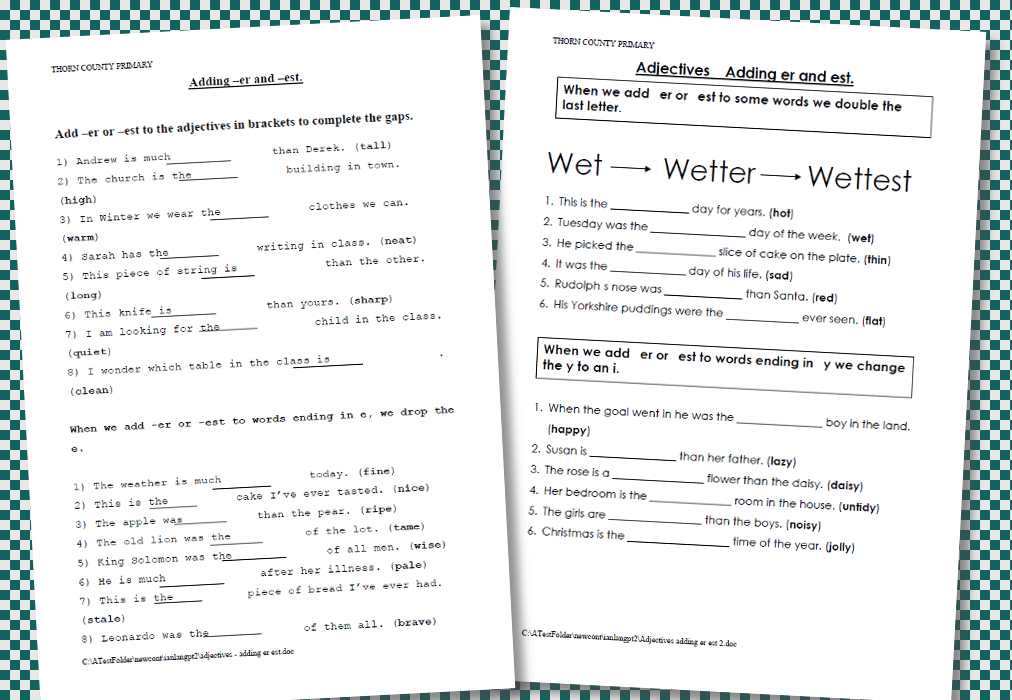
These adjectives worksheets take students through the rules of adding the suffixes -er and -est.
The first looks at the basics, asking children to fill in sentences by adding the correct suffix of these two, and explains how with words that end in ‘e’ we drop the ‘e’ before adding the ‘-er’ or ‘-est’.
The second sheet looks at words like ‘hot’ or ‘wet’, where we double the last letter before adding the suffix, and how we change words that end in a ‘y’ to be spelt with an ‘i’ before adding ‘-er’ or ‘-est’.
Click these links to get sheet 1 and sheet 2.
Expanded noun phrases
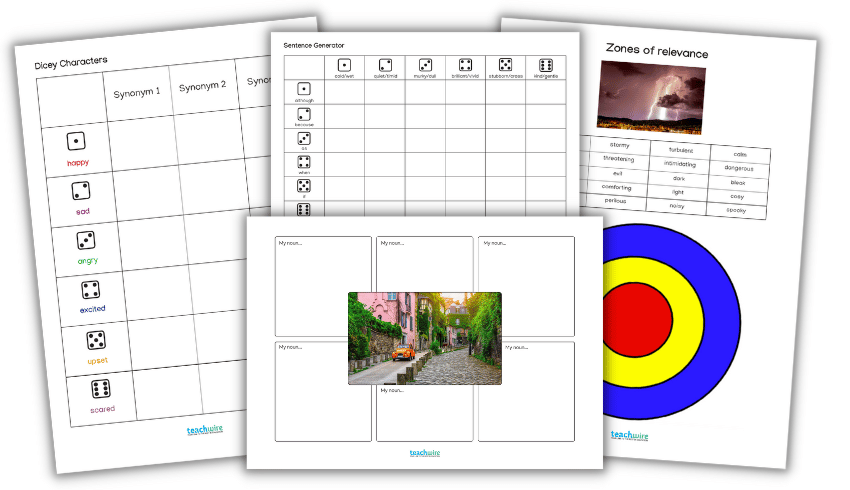
If you’re looking to take your adjective work further, we’ve already done a resource round-up for expanded noun phrases. This list features activities, worksheets and teaching ideas.
Adjective games
What are adjectives? interactive story for KS1
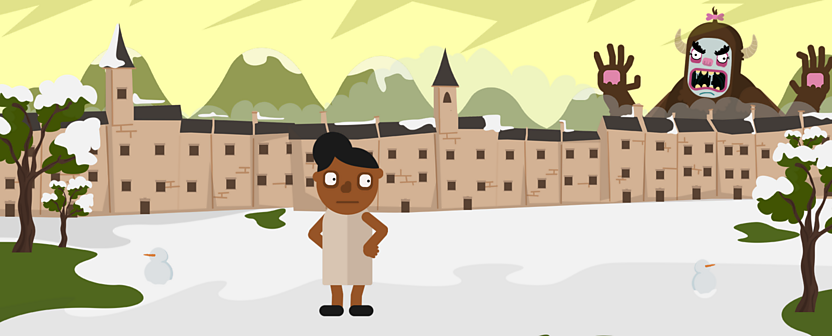
This interactive KS1 BBC Bitesize entry on adjectives includes a video, a quiz and an interactive story about a scary, smelly yeti where children highlight the adjectives.
KS2 adjectives game

This challenging KS2 adjective game will help get children thinking about making powerful adjective choices, by matching adjective synonyms. It’s an ideal stretch and challenge activity for in the classroom, or for homework.
Adjective detective game
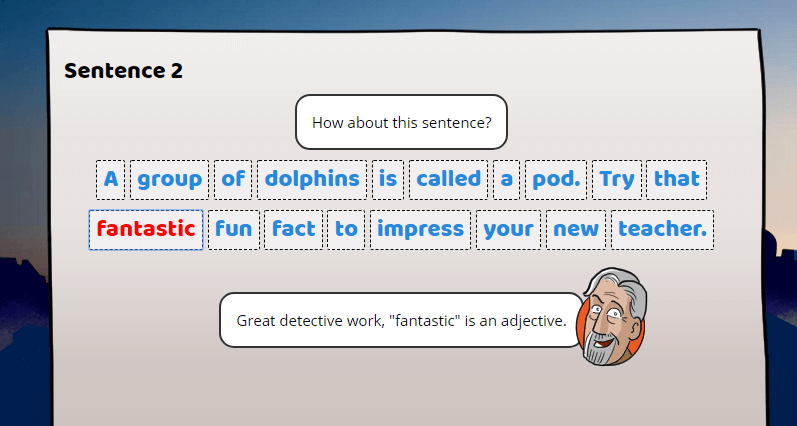
This interactive game offers children a number of sentences and asks them to pick out the adjectives. Handily, it explains to them why they’re wrong if they pick an incorrect word, and tells them what category that word falls under.
Adjectives for storytelling
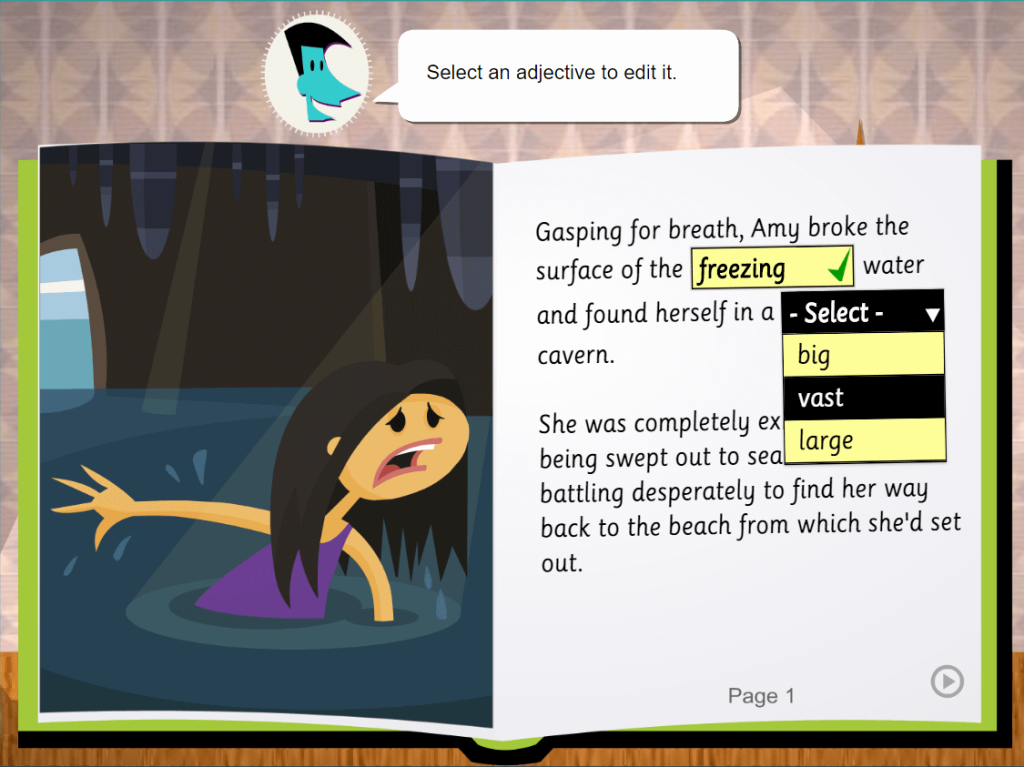
This nifty little interactive resource lets children play the role of editor at a book publishers. Their job is to go through a story called The Sea Cave and make the language more exciting and descriptive.
First they have to choose better nouns from a drop down menu, to help create a spooky and tense atmosphere. Next, they get to add adjectives to those nouns to make the tale even better.
And if you want to continue, children can then choose the best image to illustrate the story on each page, then read or print the final version. There’s even a worksheet to print where they can edit another story.
Browse more SPaG games and read advice for teaching SPaG consistently across your school.





